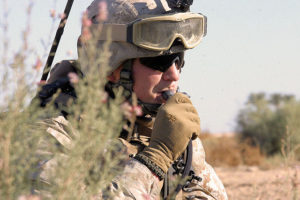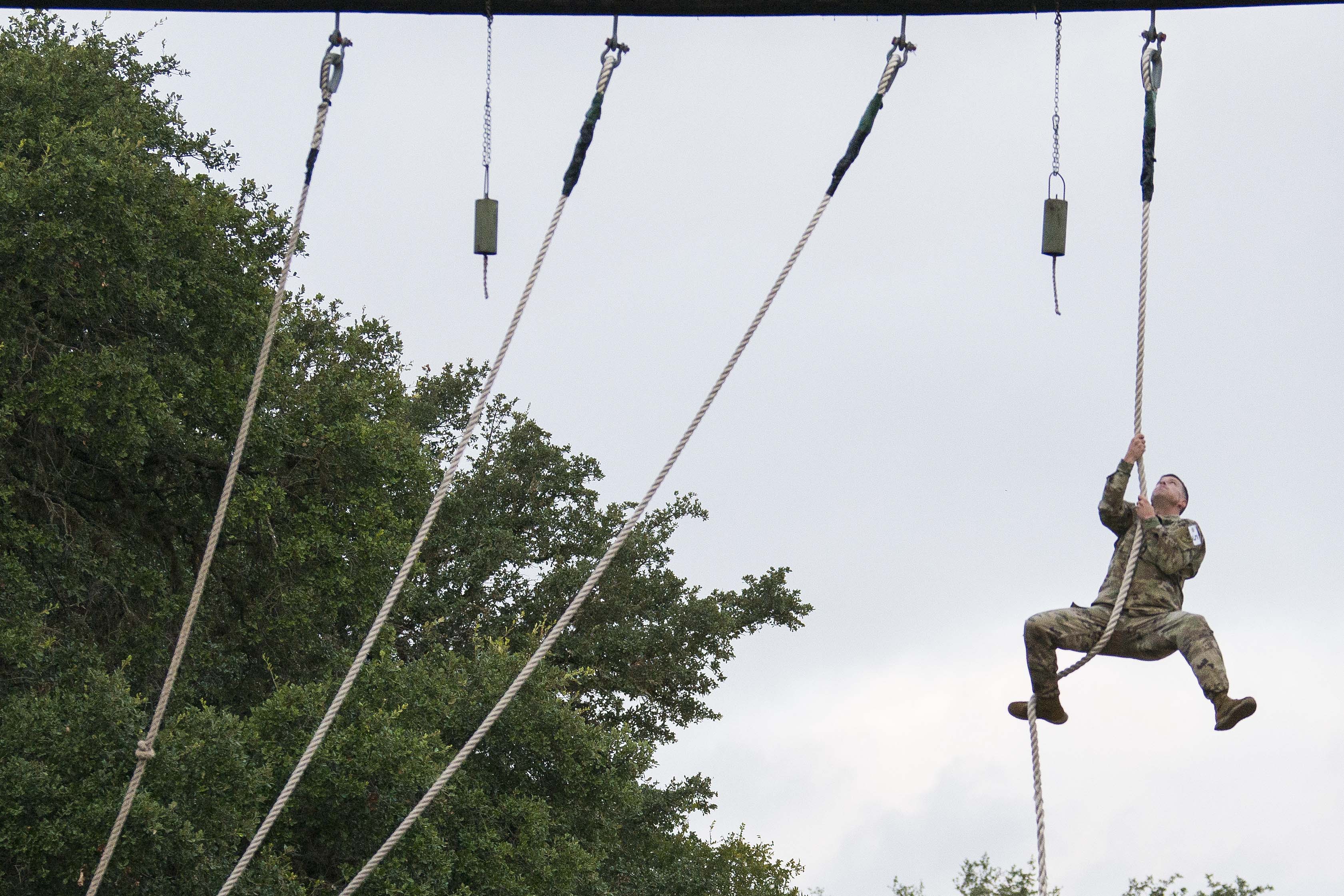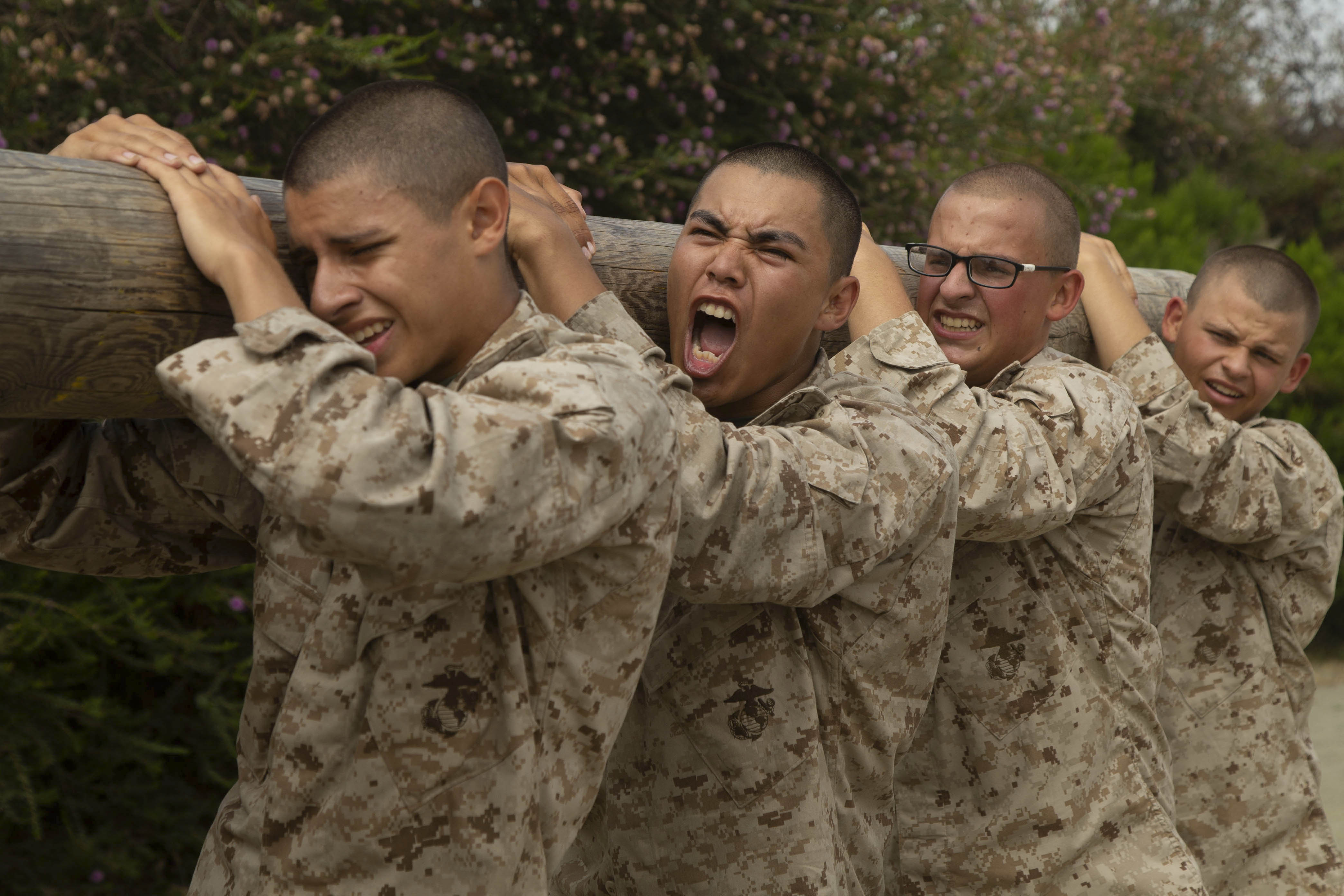
Take a knee, drink water. How many times have you heard that during your military service? On a range, during a march? Hydration is key. If you’re like me, slightly old-school, you remember the old Lister Bag, which was replaced by the ubiquitous Water Buffalo, and augmented by the Water Tanker and the even cooler Hippo. Ensuring that we had the ability to marshal our strength and replenish our depleted energy was key to continued mission success.
How tired were you after a day at the range? Or a ten, twelve, twenty mile ruck march? One of my most satisfying personal accomplishments is being known as “that bald @#$!(*& that made us ruck in a blizzard.” Built character, though, and some are still talking about it. I made sure, however, that when we got back to the motor pool, we had hot chow and coffee waiting. Why? Because the rest after streneouous effort somehow seems more restorative than just laying about.
One of the most interesting things that I found about the human body is that rarely, in times of extreme stress and required activity, do we notice more basic biological urges. I don’t recall being hungry, tired, or needing to go to the bathroom when I was in the middle of a firefight. When I was pulling Jumpmaster duties, I don’t recall needing to take a leak or a nap…but after the mission or the jump was over, get out of my way. Getting into base after a mission, all you wanted to do was hit the latrine, the dining facility, and the rack, not necessarily in that order and as quickly as possible.
What about now, though? After all, we are no longer pulling missions, or shifts, or conducting patrols. How important is taking a knee and drinking water in our civilian lives? I mean, being a hard charger, that’s what success meant in the military, and being a hard charger in our new endeavor is the way to success, right?
100% accurate, right up to the point where we faceplant in the front yard because we drove ourselves too far without taking a break.
“Every person needs to take one day away. A day in which one consciously separates the past from the future. Jobs, family, employers, and friends can exist one day without any one of us, and if our egos permit us to confess, they could exist eternally in our absence. Each person deserves a day away in which no problems are confronted, no solutions searched for. Each of us needs to withdraw from the cares which will not withdraw from us.”
Were we really always hard charging when we were in? Wasn’t there block leave, and Training Holidays, and scheduled time off? Even after 24 hour Staff Duty or CQ, we got the next day off. It sucked, sure, but we had the time to recover. We knew what would happen if we drove ourselves and our troops too long, too far, and too hard. We might have gotten away with it when we were in the field, or on a huge training event, but there was no way we could have done it longer than 72 hours. Absolutely, we pushed our physical and mental limits, but it was not continuous, and there was a period of rest at the end of it.
Don’t get me wrong, I’m the first guy to admit that I haven’t taken a real vacation since returning from Afghanistan in 2012, and that was only because I hadn’t signed into my new unit yet. Any leave that I took before my retirement was geared towards school activities, and I was already working when I was on terminal leave. Even when I am not working at my regular job, I am doing some other kind of work. Somehow, I think that I’m not alone here…to be idle, to rest, for many veterans is a form of wastefulness. We feel productive when we DO stuff, and “lazy” when we are NOT doing stuff.
Do you give yourself time to recover now? Is the stress of the job search and the level of uncertainty about the future driving you to do more? Do we feel that we constantly need to drive forward in our relentless pursuit of whatever our goal is? How often do we reach a goal we previously set, and are already looking towards the horizon? It’s as if we keep moving the finish line for ourselves.
I am in no way advocating total capitulation to a sedentary lifestyle. I couldn’t in good conscience sell that idea, and you wouldn’t buy it anyway. But do we need to always suck it up, drive on, carry on, and push through the pain? I did that several times in my military career, and have the cracked legs and compressed back to prove it. The problem is, many of us think that we are so critical to the mission that it will fail if we’re not standing at our post. It’s not arrogance, it’s that we understand the importance of what we did and what we are doing, and the only way that we feel as though we can ensure complete success is to do the darn thing ourselves.
My last day on active duty was 31 July, 2014. Do you know what happened on August 1st on Fort Carson? Reveille sounded, every unit on post held formation, the Army kept going. I know, I checked. Not that I felt as though I was critical to the operation of the entire United States Army, but to remind myself that I am simply a veteran now. My wars have been fought, my time has been served. That’s true after twenty-two years, and it would have been true if it had only been two years.
The challneges at work will always be there. You can either relentlessly pursue them and burn out like a shooting star, or take the time to give yourself a break, both literally and figuratively, and continue to shine.
How do you rest? What do you do to recharge your batteries, in what way do you now take a knee and drink water? We made sure our troops did it while we were in…why do we avoid doing it now?




3 Comments
Dianne · February 24, 2017 at 11:01 am
A valuable lesson to learn. I don’t do it enough, but the last four months proved to me it was time. Between taking on a full load of classes and working full time and trying to remain a part of the family I was beaten down so much so that work became more than an effort, I dropped out of a social life and my grades took a hit. It had to happen, I had hit the wall head on this time and knew it, I was heading down into the center of a difficult bout with my PTSD and wasn’t in slightest bit interested or cared about getting out.
Duane France · February 24, 2017 at 11:48 am
Dianne, thank you for your honesty and transparency! Many of us hit that wall, and then take a required rest, usually for much longer than intended. Thanks for the comment!
Hey, Veterans: Why So Serious? — Head Space and Timing · January 25, 2018 at 3:01 am
[…] said it before, but there was often a rest plan when we were in the Army, but we can also be consumed by the need to keep going in our […]
Comments are closed.